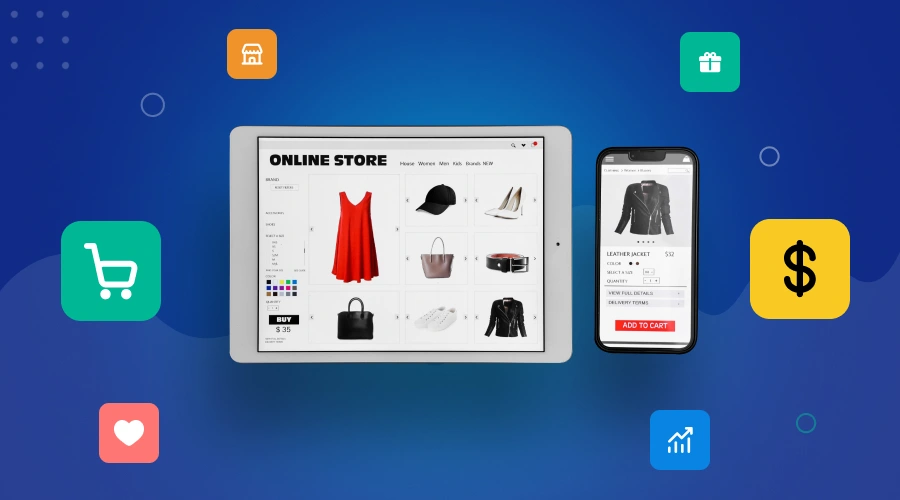A well-crafted mobile app holds the potential to open doors into untapped markets, elevate customer involvement, and propel business expansion in our modern mobile-centric society. However, amidst a sea of companies competing for your consideration, selecting the ideal one can seem daunting.
It is of paramount importance to ask precise and pertinent questions to ensure a successful and bountiful partnership. By delving into a company’s expertise, procedures, and technical proficiencies, one can ensure a fruitful collaboration.
Vital Questions You Must Ask Before Onboarding an App Development Company
Clear communication helps you have confidence in your hired app development team, prepare better for the launch, and ensure a competitive advantage in the market.
What platforms do you specialize in? (Android, iOS, or Cross-Platform)
It is crucial to know where the company excels. Do you require a native app for one platform (Android or iOS) to utilize the distinct capabilities and user experience each provides? Or are you thinking about a cross-platform app that can be used on both platforms with only one codebase?
Pros of Native Apps
- Optimal Performance:The native app uses the device’s capabilities entirely, resulting in superior performance and a quicker response for users.
- Access to Native Features:They can blend smoothly with device features like GPS, cameras, and fingerprint scanners.
- UI/UX Specific to Platform:Native apps offer a user experience that is more refined and recognizable, matching the design principles of each platform.
Pros of Cross-Platform Apps
- Cost-Effectiveness:Developing a single codebase reduces development time and cost.
- Faster Time to Market:You can launch your app on both platforms simultaneously.
- Easy Maintenance:Updates and bug fixes can be applied on both platforms using one main set of code.
Can you showcase your mobile app development portfolio?
A robust portfolio serves as a testament to a company’s seasoned expertise and formidable capabilities. Seek out applications that align with your envisioned scope, both in terms of intricate intricacy, broad functionality, and desired market audience. Inquire about the obstacles encountered during the developmental process and their successful resolutions. This will give you valuable insights into their problem-solving skills and approach.
What is your app development process?
Having a clearly defined development process ensures efficient workflow and maintains the progress of your project. Request information about their methodology, such as Agile or Waterfall. Agile prioritizes iterative development with ongoing feedback loops, whereas Waterfall adheres to a more sequential approach. Explore how they handle project management, communication, and quality assurance throughout the SDLC.
What technologies and frameworks do you use?
Comprehending the technical stack utilized by the organization holds the utmost significance. Swift for iOS and Java/Kotlin for Android stand as prevalent selections in terms of pursuing native development. As for cross-platform development, React Native, Flutter, and Xamarin serve as prominent alternatives. It is imperative to ensure that the technologies chosen align with both the current requirements and future projections for the application, as they may potentially have a significant impact on its success.
How will you ensure the security of my app and user data?
Ensuring the safety and protection of vital information holds great importance in the current digital era. Request for details regarding the organization’s procedures for safeguarding data storage, encryption, and user authentication. Inquire about their routine security assessments and penetration testing to detect and address any potential weaknesses.
What is your team structure, and who will be working on my project?
It is important to understand the team responsible for developing your application. Inquire about their proficiency levels, areas of expertise, and modes of communication. Having knowledge of your main point of contact ensures coherent and continuous communication throughout the project.
What is your estimated timeline and cost for developing my app?
Obtaining an accurate quotation may prove challenging during the preliminary phase, yet a dependable approximation for both development duration and expenses holds paramount importance. Note down factors that will impact the ultimate cost (e.g., the intricacy of the application, included features, design revisions).
Request information regarding their billing structure (e.g., hourly, fixed-rate) as well as the potential incorporation of ongoing maintenance and support.
How will you handle ongoing maintenance and updates?
The process of app development continues beyond the initial launch, as implementing new features, addressing bugs, and providing security updates are integral to sustaining user interest and ensuring optimal functionality. Inquire about the corporation’s post-release maintenance strategy and its protocol for addressing any system glitches and implementing necessary modifications.
Can you provide references from past clients?
It is possible to learn a lot about a company’s work ethic, communication style, and capacity for on-time and affordable project delivery by interacting with previous clients. Request recommendations from people in your field or working on similar projects.
Conclusion
Selecting the right mobile application development firm is a crucial decision. By asking the right questions and thoroughly assessing their expertise, process, and technical skills, you can ensure a successful partnership. A company like Knovial has a strong portfolio, a clearly defined development method, and a focus on security. Don’t hesitate to ask for recommendations and consider their app store submission and marketing capabilities. With an informed choice, you will be on the path to launching a successful mobile application that achieves your business goals.







